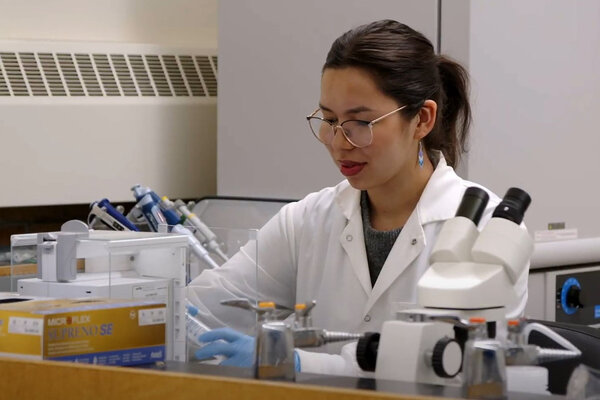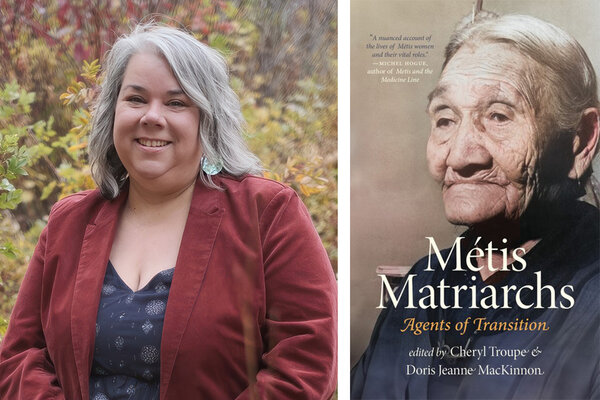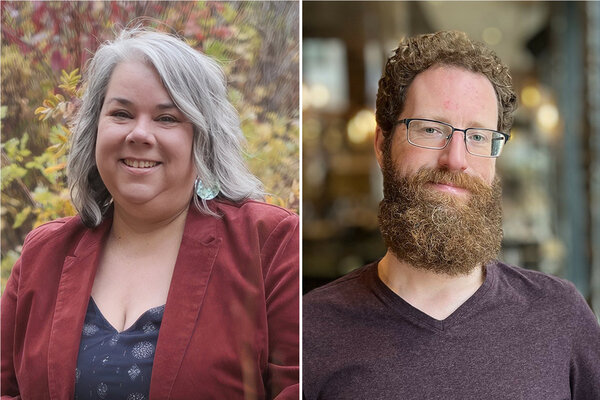
Statement on unmarked graves found at former residential school at Cowessess First Nation
A message from College of Arts and Science Dean Peta Bonham-Smith and Vice-Dean Indigenous Angela Jaime
A statement from Dean Peta Bonham-Smith and Vice-Dean Indigenous Angela Jaime
June 24, 2021
Joining with the entire University of Saskatchewan (USask) community, it is with profound sadness that we write this message today. The horrific finding of 751 unmarked graves outside the former Marieval Indian Residential School at Cowessess First Nation on Treaty 4 Territory is shocking. This loss of the most innocent and young human life, and the indignity of unmarked graves, are indictments upon this country and its colonial legacy.
This tragedy is made more heartbreaking as it is so soon after the remains of 215 children were found on Tk’emlúps te Secwépemc on the site of the former Kamloops Indian Residential School.
More truths are coming to light and must be heard. This affects everyone and belongs to everyone, regardless of your generation or genealogy.
It is necessary to locate all of the unmarked graves and to do everything we can to honour and give respect and closure to the families of the missing and lost children and to survivors of residential schools.
As part of National Indigenous Peoples Day, the Gordon Snelgrove Gallery and the main entrance of the Arts Building are lit up with the calls to action released in 2015 by the Truth and Reconciliation Commission of Canada.
June is National Indigenous History Month. Let us think carefully and critically about what our citizenship means to us, and how we live in relation to others on these lands. What examples of wîcihitowin (working together) do we follow and model, and what new good ways can we begin?
In her May 28 statement on the burial site at the former residential school in Kamloops, USask Vice-Provost Indigenous Engagement Dr. Jacqueline Ottmann (PhD) wrote: “What can individuals, in groups, or as a community do in response to this news? Acknowledge the truth. Light a candle, say a prayer, or have a minute of silence in remembrance of the lives that were taken. Children did survive Indian Residential School—treat these survivors with respect and take the initiative to learn their story in ways that do not burden them, but acknowledge their stories and see their resilience and strength.”
We invite the College of Arts and Science and its extended community to think about what decolonization is and how we can contribute to it on individual and systemic levels.
There are no right words to offer survivors and their families. We must remember those who lost their lives while they were at residential schools, day schools, sanitoriums and other institutions, and those affected by the Sixties Scoop. There is no one “right way” to feel and emotions run high. Let this fuel us to find better ways and good ways to be in relation to each other, and to move from sympathetic gestures to meaningful policy changes and decolonized paradigms and frameworks.
We in the College of Arts and Science stand beside Cowessess First Nation as allies ready to listen, understand and accept the truth of what happened.
We acknowledge we are on Treaty 6 Territory and the Homeland of the Métis. We pay our respect to the First Nations and Métis ancestors of this place and reaffirm our relationship with one another.
Dr. Peta Bonham-Smith (PhD)
Dean, College of Arts and Science
University of Saskatchewan
Dr. Angela Jaime (PhD)
Vice-Dean Indigenous, College of Arts and Science
University of Saskatchewan
USask Student Affairs and Outreach provides virtual same-day counselling sessions, mental health intake appointments and outreach services for students needing assistance navigating difficult situations. To book an appointment, call 306-966-5757 or email intake@usask.ca.
The Student Wellness Centre is a primary health-care team of physicians, nurses and counsellors who are providing services to students through phone and web chat and are offering some in-person appointments (your health-care provider will determine if an in-person appointment is needed). Same-day service is available; appointments can be made by emailing student.wellness@usask.ca.
For after-hours support, contact Mobile Crisis at 306-933-6200.
The Indian Residential School Survivors Society Emergency Crisis Line is available 24/7 for those that need support: 1-800-721-0066 or 24-hour crisis line 1-866-925-4419.
The Mental Wellness Help Line for Indigenous Peoples is toll free 24/7: 1-855-242-3310.


